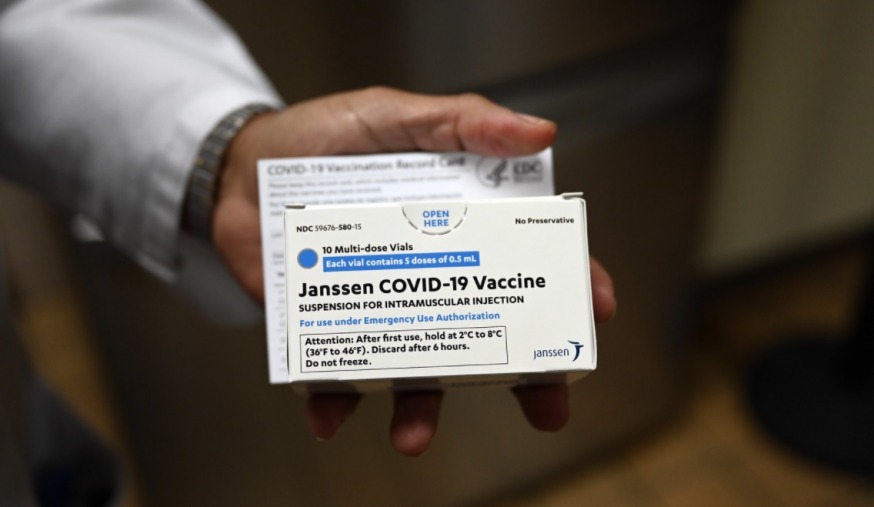
Johnson & Johnson Vaccine (Photo: Kevin P. Coughlin / Office of Governor Andrew M. Cuomo)
April 13, 2021 By Christina Santucci
New York officials halted the use of the Johnson & Johnson vaccine at city and state sites Tuesday – as federal health agencies investigate whether the shot is linked to rare blood clots.
The mayor said the city’s Vaccine Command Center was giving new appointments for the Moderna or Pfizer vaccine to those who had appointments for the J&J shot. The move followed recommendations from the CDC and FDA for a pause on J&J vaccinations.
“We will ensure New Yorkers continue to get the protection they need as we await the outcome of the Johnson & Johnson investigation,” Mayor Bill de Blasio tweeted.
“This is out of an abundance of caution. NYC has no known cases,” the mayor added.
The CDC and FDA said they are reviewing six cases reported in the United States – out of an estimated seven million doses given – of people developing a rare and severe type of blood clot
All six cases involved women between the ages of 18 and 48, and symptoms occurred six to 13 days after vaccination, said Dr. Anne Schuchat, Principal Deputy Director of the CDC and Dr. Peter Marks, director of the FDA’s Center for Biologics Evaluation and Research.
The city has given out an estimated 234,000 J&J vaccinations – including one that de Blasio received, the mayor said during a news conference Tuesday.
About 4,000 J&J doses were cancelled Tuesday and would be rescheduled “in the coming days,” said Dave Chokshi, the city’s health commissioner. New York City had received 15,100 J&J doses this week, according to CDC data.
Among city locations using the J&J vaccine was a new site at Queens Center mall, which opened Monday. A reporter for PIX11 posted a photo, showing signs that said the vaccination site was closed Tuesday.
Those with appointments for J&J vaccines at state sites were offered the Pzifer vaccine Tuesday, State Health Commissioner Dr. Howard Zucker said.
State mass vaccination sites in Queens – Aqueduct Racetrack and York College – were already using the Pfizer vaccine, according to the state’s website. However, the swap would affect borough residents headed to other state sites, like the Javits Center.
Queens Borough President Donovan Richards said his office is hosting a Virtual Vaccine Town Hall with the NYC Department of Health and Mental Hygiene at 6 p.m.
“With today’s news about the Johnson + Johnson vaccine, please bring any questions you have about these shots’ availability, side effects and more,” Richards tweeted.
Those who wish to attend the Virtual Vaccine Town Hall can register online.
